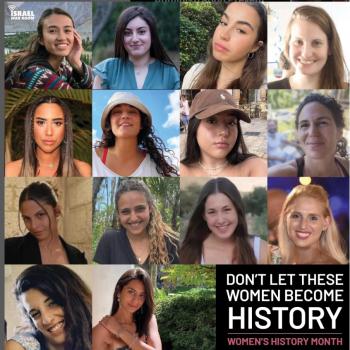Editors' Note: This article is part of the Patheos Public Square on Moving Past Hatred. Read other perspectives here.
This month our Public Square tackles the issue of personal, national, and religious hatred, seen every day spread across the canvases of our common life and tucked into the corners of our private lives. Sometimes it's overt violence, as we saw in Charleston this year; sometimes it's vicious speech splashed in online comments. Sometimes it's directed toward those who seem to threaten our way of life, or whose political opinions seem especially offensive, or whose religious convictions seem absurd. We thought we'd take the opportunity this month to articulate a bit of the Patheos vision, a vision crafted around dialogue and respect amidst the great diversity and disagreements of our common life.
From the beginning, we have recognized the critical need for greater understanding of our religious differences and for a safe place to learn about them and express them. Yet newly-birthed visions often crash and burn when they hit the messiness of reality, and in the years since our launch, we have learned a very great deal about people's beliefs and passions and worldviews and convictions.
Today we have nearly 500 bloggers on Patheos and nearly 12 million unique visitors every month. We have created the largest website on religion and spirituality in the world, and every day there is new energy around the conversation. Patheos has become a place to learn, yes—nearly half a million people reference the Patheos Library resources every month—but it has also become a community of communities, gathering together people of every faith and no faith at all to discuss the pressing issues of our day.
Patheos reflects the diversity of the world, the foundational reality that the man next to you in the grocery line or the woman in the office down the hall or the couple in the train next to you may have deeply different ideas about where the world came from, where it is going, and what their purpose in life is. When we make assumptions about common values and find they're not shared, we may feel threatened or angry. Patheos exists to help people over that hurdle by giving them the public forum to ask questions, explore traditions, and find ways to connect.
This is not interfaith—where differences are set aside in order to find common ground; this is multifaith—a marketplace of ideas and beliefs that encourages overt expressions of belief and practice. I think of the Enlightenment suggestion that, since religious differences are so contentious, they should all be reduced to their lowest common denominator, to the one or two beliefs or values that everyone shares—such would be the path of civic harmony. In a world such as ours, however, that seems less and less likely and, at Patheos, even less desirable. Rather, let us learn instead to make room for our differences and find ways to let each of them contribute to the common good.
But it hasn't always been easy. Our Terms of Service give three rules for the dialogue: 1) Respectful and elevated; 2) Open, yet safe; 3) Honest and real. These are not always easy. Occasionally our writers are more honest, and less elevated; sometimes the commentary is open but not too respectful. Real can be raw, and safe can become saccharine. We encourage our writers not to water down differences out of fear of disagreement; we encourage them to venture out of the silos of their faith communities and genuinely engage the perspectives of others. And yes, inevitably this creates conflict. We believe, however, that conflict itself is not the source of hatred. It's when conflict is compounded by ignorance, suspicion, and misunderstanding that the common good is jeopardized, compromise becomes impossible, and hatred flares.
Patheos hosts the conversation and creates a dynamic marketplace of beliefs, reflecting the multi-faceted realities of 21st-century religion and spirituality. As such, it's a great public forum where the cacophony of voices around all the parts and pieces of faith and non-faith—family, community, values, sexuality, ritual, spirituality, vocation—makes room for differences. Each writer and each reader is learning how to find his or her own voice without silencing another's. It's a place where plurality thrives without reductionism, and where a myriad of beliefs can be explored, articulated, disputed, questioned, and, hopefully, understood.
10/13/2015 4:00:00 AM




